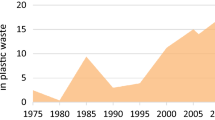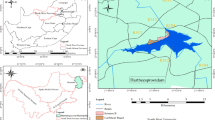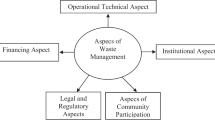Summary
Present municipal waste management paradigms in Brazil do not allow for flexible approaches to solving an extremely dynamic problem. This paper discusses the basic flaws in present thinking models of residents and municipal administrators. Fundamental arguments presented on municipal solid waste relate to nomenclature, destinations, definitions, logistics, social dynamics, social assistance programs, education and employment philosophies. In each case, the consequences of the stalemate are explained in terms of the unsustainable situation of constantly growing landfills. In sequence, a proactive thinking model is presented and explained that has the potential of drastically reducing landfill size. It is called Municipal Transit Material Processing. The model has been tested successfully in small communities and is now available for scale-up. The landfill diversion achieved stands at 62% of household waste in comparison with 15% theoretically possible in Brazil with selective collection models. Although of necessity the arguments apply directly to Brazil, the basic ideas behind the reasoning may be extrapolated to other Southern countries. The following simple example will illustrate to the reader the type of paradigm inversion the paper proposes to convey. The classical political slogan in Brazil is “get children out of garbage dumps”. The inversion proposed and explained is “do away with garbage dumps”.
Similar content being viewed by others
References
Button, K.: 2002, ‘City management and urban environmental indicators,’ Ecological Economics 40(2), 217–233
City of Halifax Waste Management Information (2005), available at www.halifax.ca/wrms on January 10, 2005.
Costa do Sauípe: 2005, Processing the biodegradable waste (in Portuguese), Saneamento Ambiental on-line, São Paulo, No 191 (January 11) www.signuseditora.com.br
Fehr, M. and Calcado, M.R.: 2001, ‘Divided collection model for household waste achieves 80% landfill diversion,’ The Journal of Solid Waste Technology and Management 27(1), 22–26
Fehr, M. and Castro, M.S.M.V.: 1999, ‘Municipal waste analysis induces management model (in Portuguese),’ Saneamento Ambiental 10(55), 38–41
Gerbens-Leenes, P.W. and Nonhebel, S.: 2002, ‘Consumption patterns and their effects on land required for food,’ Ecological Economics 42(1–2), 185–199
Glasby, G.P.: 2002, ‘Sustainable development: The need for a new paradigm,’ Environment, Development and Sustainability 4(4), 333–345
Herendeen, R.A. and Wildermuth, T.: 2002, ‘Resource-based sustainability indicators: Chase County, Kansas, as example,’ Ecological Economics 42(1–2), 243–257
Klang, A., Vikman, P.A. and Brattebo, H.: 2003, ‘Sustainable management of demolition waste—an integrated model for the evaluation of environmental, economic and social aspects,’ Resources Conservation and Recycling 38(4), 317–334
Mason, I.G., Brooking, A.K., Oberender, A., Harford J.M., Horsley, P.G.: 2003, ‘Implementation of a zero waste program at a university campus,’ Resources Conservation and Recycling 38(4), 257–269
Niemeijer, D.: 2002, ‘Developing indicators for environmental policy: Data-driven and theory-driven approaches examined by example,’ Environmental Science and Policy 5(2), 91–103
Pitot, H.A.: 2003, Source separation of organic wastes proves feasible in a Delhi “Basti”, Internet Conference on Ecocity Development, United Nations University, February to June 2003, symposium 3-C, paper F09, www.ias.unu.edu/proceedings/icibs/ecocity03
Poon, C.S.: 1997, ‘Management and recycling of demolition waste in Hong Kong,’ Waste Management and Research 15(6), 561–572
Rees, W.E. and Wackernagel, M.: 1996, ‘Urban ecological footprints: why cities cannot be sustainable,’ Environmental Impact Assessment Review 16(4–6), 223–248
Shenzhen declaration on ecocity development, Fifth International Ecocity Conference, Shenzhen, August 23, 2002, www.ias.unu.edu/proceedings/icibs/ecocity03/declaration.doc
Wackernagel, M. and Yount, J.D.: 2000, ‘Footprints for sustainability: the next steps,’ Environment, Development and Sustainability 2(1), 23–44
Wong, M.H., (2003), Landfill restoration for sustainable waste management and land utilization, Internet Conference on Ecocity Development, United Nations University, February to June 2003, symposium 3-C, paper F13, www.ias.unu.edu/proceedings/icibs/ecocity03
Author information
Authors and Affiliations
Corresponding author
Rights and permissions
About this article
Cite this article
Fehr, M. A Successful Pilot Project of Decentralized Household Waste Management in Brazil. Environmentalist 26, 21–29 (2006). https://doi.org/10.1007/s10669-006-5355-1
Issue Date:
DOI: https://doi.org/10.1007/s10669-006-5355-1




